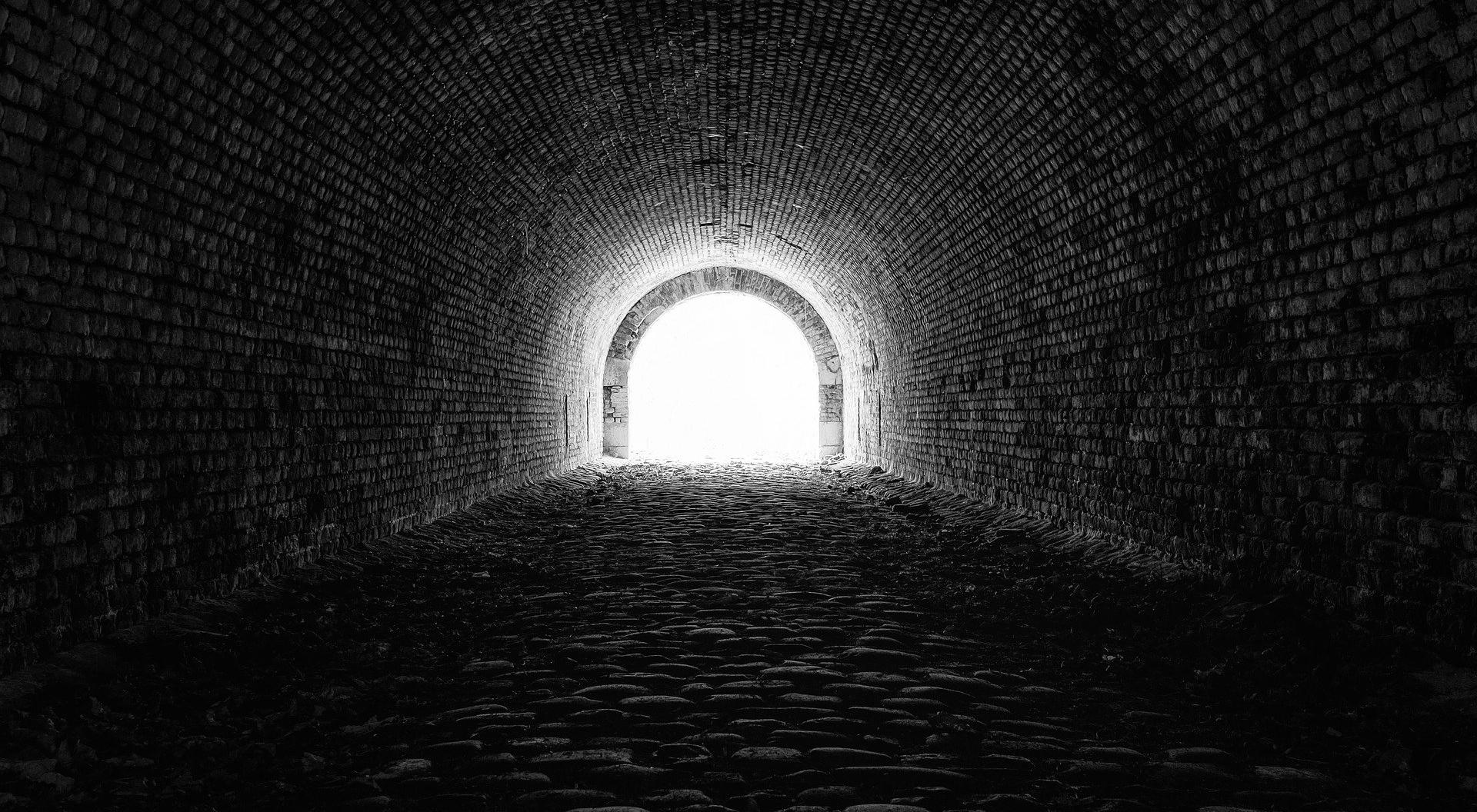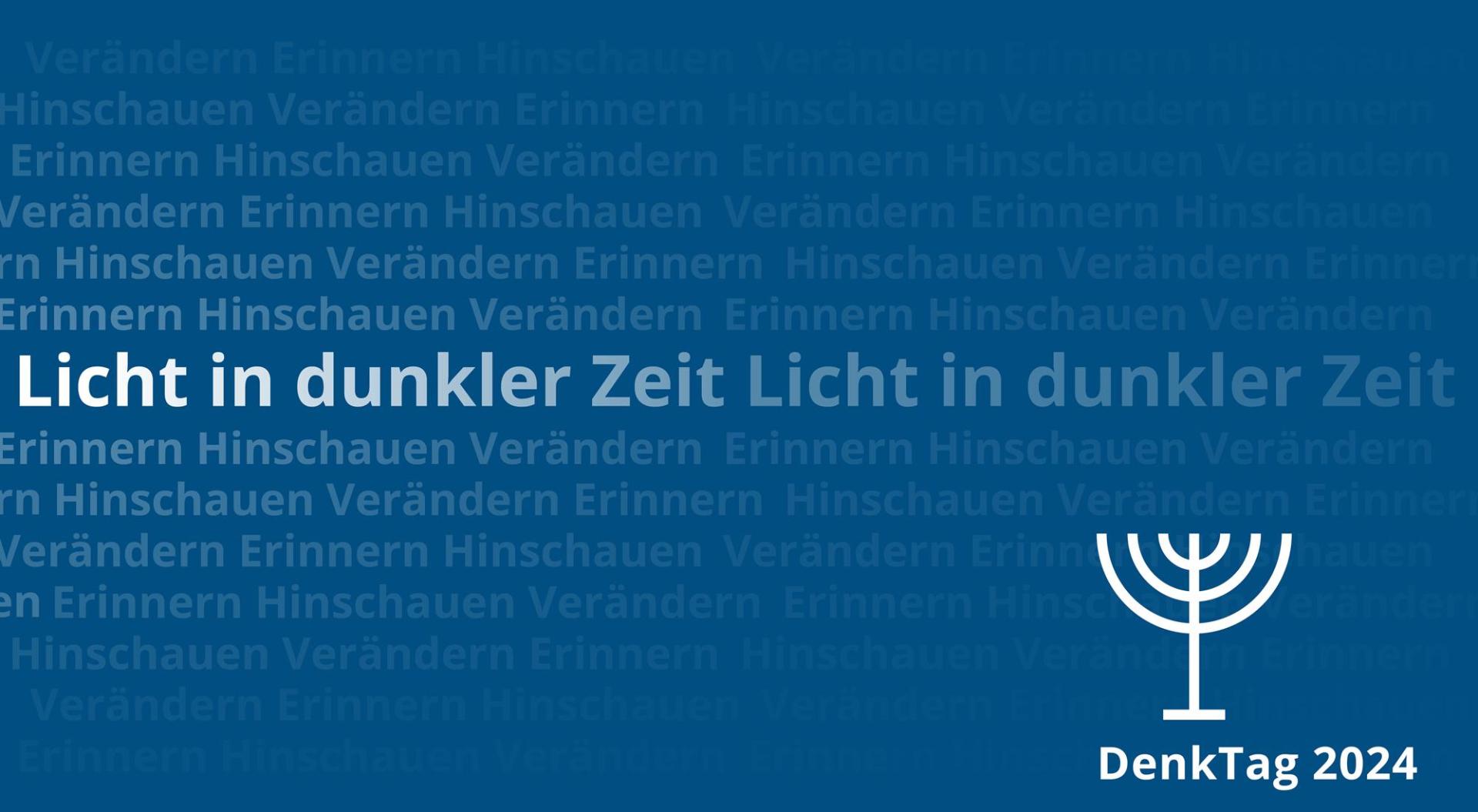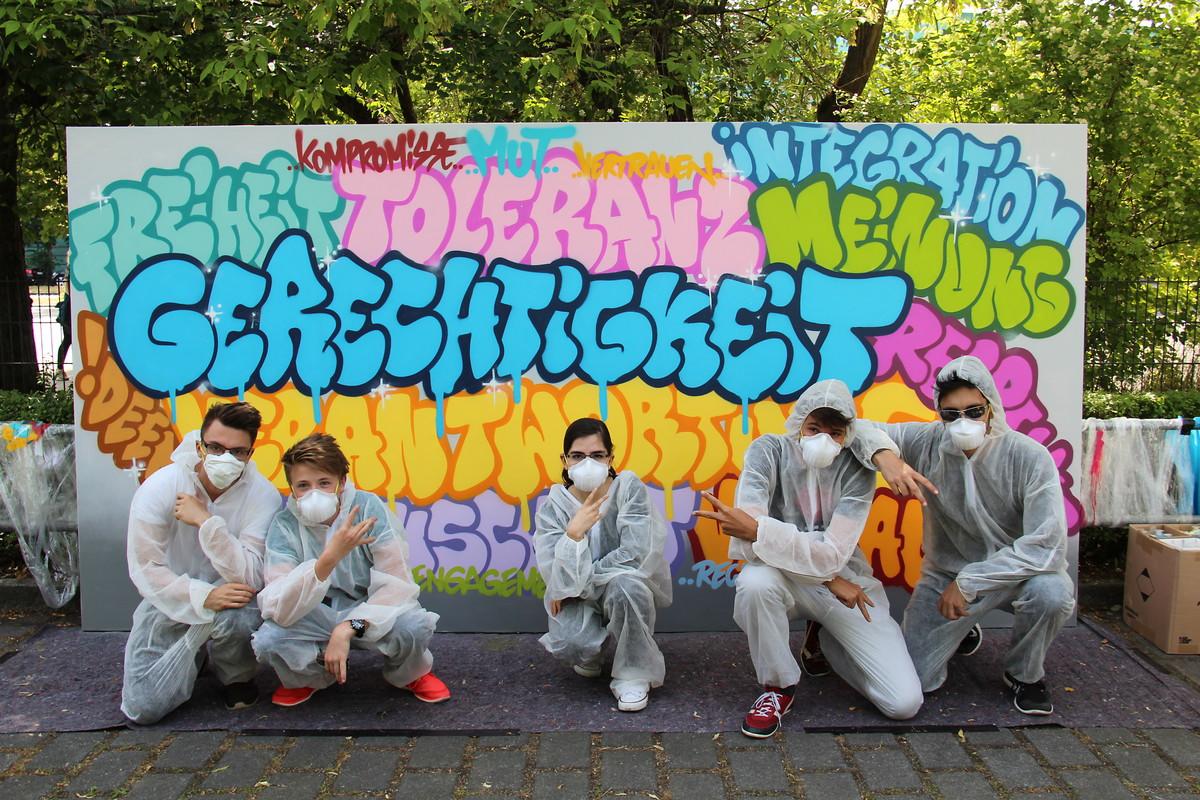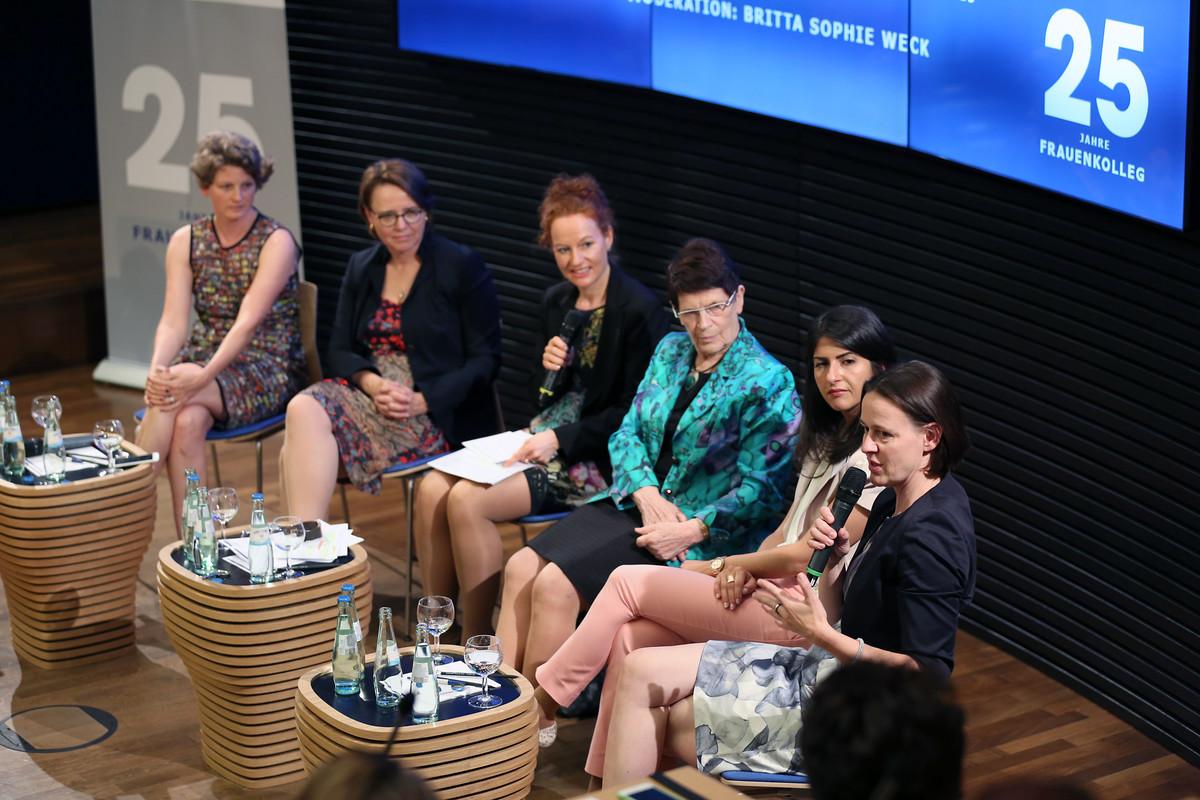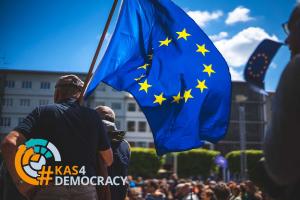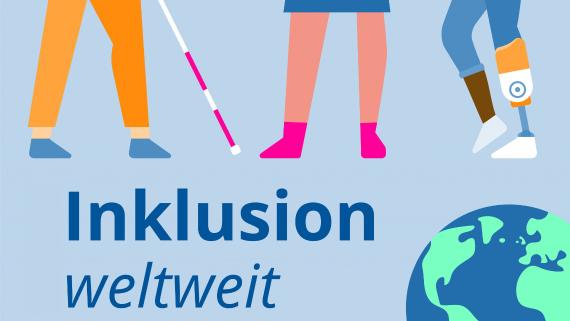In terms of the state, the liberal order needs a unifying ethos, a kind of ‘public spirit’, among those who live in this state. The question is then: Where does this ethos come from, which can neither be enforced by the state nor imposed by sovereignty? One could say: first of all, from the lived culture. But what the factors and elements underpinning this culture? There we are indeed with sources like Christianity, Enlightenment and Humanism.
At a glance
- Societies in Germany and Europe are undergoing transformation and becoming more diverse. That increases the need for binding rules so as to stabilise social co-existence.
- Change processes can lead to cracks in the social fabric. Politicians need to take concrete actions to prevent these cracks from deepening.
- Religion is undergoing processes of change, too. In Germany and Europe, a trend towards secularisation is particularly clear to see.
- Religious beliefs continue to be relevant for social cohesion. What is new, however, is that the ambivalent character of religion is now being perceived far more strongly.
- We react to political needs by offering analysis and consultation on social issues. In the area of religious policy, we are particularly characterised by our commitment to international religious freedom.
Content
1. Social changes and cohesion
2. Religious diversity and secularisation
3. Our offers and projects on the topic
4. Publications, events and media contributions on the topic
Social changes and cohesion
German society is becoming more diverse. With German unity, a country divided for 40 years has been and continues to be brought together since 1989. European integration, advancing digitalisation and the energy revolution are permanently changing working and everyday life in Germany. Migrants are becoming Germans, and religious diversity as well as the number of life and family models are rising. At the same time, the urban-rural and young-old ratio is changing.
Diversity also increases the need for stabilising coexistence through binding rules, however. That is often more successful than expected, but sometimes fails due to different demands and interests. Cracks are emerging in some areas of the social fabric. To ensure that these cracks do not deepen, social changes must be shaped politically. To achieve this, politics needs interdisciplinary analysis and consultation. The Konrad-Adenauer-Stiftung responds to this need with socio-political analyses, discussions and advice. Its socio-political work focuses on children, youth and family, demographic change, migration, integration and equal rights.
Religious diversity and secularisation
But the topics of religious influence, religious diversity and religious policy are evidently subject to processes of change, too. The Christian churches are continuously losing members both in Germany and Europe. The number of non-denominational people continues to rise; a general trend towards secularisation is becoming clear to many. Yet, religion is not disappearing from the state and society, rather its role is changing. That is more visible in the global context than the European one. 84 per cent of the global population feel they belong to a religious community and, by their own account, believe in God or a higher power – and the trend is rising.
The significance of religious convictions for social cohesion and the search for orientation still seems to be relevant, even if the ambivalent character of religion is increasingly perceived – as a meaningful motivation on the one hand, and as a source of conflict, on the other. The relevance of religion in today’s societies as well as in national and international politics, is reflected in various thematic fields and policy areas. This includes the discussion on religious education, the organisation of Jewish and Muslim life in Germany and the safeguarding of religious liberties worldwide. The Konrad-Adenauer-Stiftung’s religious policy work focuses on a commitment to religious freedom in particular.
Our offers and projects on the topic
Discussion forums and publication projects
Below you will find discussion forums and multi-party publication projects on current religious and socio-political issues. The main emphasis should be placed on the two discussion forums dealing with questions of religious policy.
Expert Initiative Religious Policy
The Expert Initiative Religious Policy (EIR) is an academic-political forum for discussion on religious policy issues. The EIR blog provides a knowledge forum and debate platform on current events and developments in constitutional law, German politics and the emerging common European constitutional space. Based on various expert opinions, the blog makes proposals on how to further develop the religious legal system within the meaning of freedom of religion and ideology.
Discussion Forum “kreuz-und-quer.de”
The blog “kreuz-und-quer.de” sees itself as a discussion forum for political action out of Christian duty. The blog articles are deliberately diverse: They ask, for instance, how the church and politics intend to deal with the most important problems of our time. While also asking us what conclusions we draw from this.
Contributions to the Debate on Abortion
Since the 1993 ruling by the Federal Constitutional Court and subsequent political regulations the public debate on abortion in Germany has largely relaxed. Three decades later, reproductive rights and women's autonomy are increasingly emphasized. It is necessary to recognize that a viable compromise is essential to preserve different fundamental rights and ensure social peace.
Learn more about the contributions to the debate on abortion
Contributions to the Debate on Assisted Suicide as an Act of Business
After the German Constitutional Court declared § 217 of the German Penal Code (StGB), which criminalised the commercial promotion of suicide, to be null and void in February 2020, politics and society now face the question on how to deal with wishes to die and assisted suicide. Read our contributions to the debate on the topic of commercial assisted suicide.
Learn more about the contributions to the debate on assisted suicide
Event series and seminars
The Konrad-Adenauer-Stiftung offers different event formats of socio-political relevance, aimed at various targets groups. While the Youth Policy Days and the denkt@g competition represent a specific offer for youth and young adults, the Women’s Council aims to explicitly promote women with targeted nationwide formats, so as to increase their presence and visibility in politics, business and society.
DenkTag and denkt@g Competition
For many years, the Konrad-Adenauer-Stiftung has used the official day of remembrance for victims of National Socialism as an occasion for nationwide projects and events. As part of this so-called “DenkTag event series”, talks with contemporary witnesses, lecture events, readings and exhibitions are held on all matters relating to 27 January in numerous federal states.
Every two years, the nationwide internet youth competition “denkt@tag” also takes place under the patronage of the former President of the Germany Bundestag Dr Norbert Lammert.
ChancenZeit – together for society
ChancenZeit – together for society
Street survey for the social year
(only in German)
YouTube, onlinekas
Since the Russian attack on Ukraine in February 2022, there has been renewed discussion in Germany about compulsory service. At its 35th federal party congress in September, the CDU decided to advocate for the introduction of a compulsory “social year”. However, the implementation of the project of such a compulsory period of service to the state and society faces a number of objections and concerns.
A stronger emphasis on benefits and opportunities for the individual and a more flexible time frame could remedy the situation. That is why the Konrad-Adenauer-Stiftung is organising events on this topic throughout Germany under the motto “ChancenZeit – geMEINsam für Gesellschaft”. We would like to discuss pro and con arguments at eye level with all participants and also model alternative proposals.
JugendpolitikTage (Youth Politics Days)
Since 2007, the Konrad-Adenauer-Stiftung has been organising JugendpolitikTage several times a year, where young adults can obtain information about current social and political issues, discuss them and exchange ideas. The various workshops are specially adapted to the needs of young people. In the form of films, comics, newspaper articles, plays, dance choreographies, drawings and self-written narratives, the participants can explore various topics.
Women’s Council
Women continue to be under-represented in politics, business and society. For this reason, with the Women’s Council, the Konrad-Adenauer-Stiftung provides a nationwide seminar programme just for women. With our multifaceted events, we would like to embolden women to position themselves well and take responsibility.
Podcasts and video series
Some of the Konrad-Adenauer-Stiftung’s podcasts and video series are devoted to relevant aspects of socio-political issues such as social diversity or Jewish life in Germany.
Future Women
In the podcast “Future Women", women have something to say about their social commitment and associated experience. In the discussion, they report on their personal journey, their own trajectory and the challenges and difficulties facing them on the path towards greater co-determination and the realisation of their own visions and specific goals.
Aftertaste – Jewish Everyday Life in Germany
Aftertaste – Jewish Everyday Life in Germany, Trailer
(only in German)
YouTube, Onlinekas
What does everyday life for Jews in Germany really look like today? On the occasion of the anniversary “1700 years of Jewish life in Germany”, we have issued the video series “Aftertaste – Jewish everyday life in Germany”. Britta Herres, who is on her voluntary social year, embarks on a journey through the republic to talk to different people of Jewish origin.
Britta’s Hanukkah Week
Britta’s Hanukkah Week
(only in German)
YouTube, Onlinekas
We sent Britta Herres, who is on a voluntary social year with us, on a little journey. Together with Leni, a young woman who has decided to become a rabbi, she explores Berlin. What motivated Leni to take up rabbinical studies? What is it like to celebrate holidays in Berlin? And where does the origin of the Hanukkah festival actually lie? More on this can be found in our video series “Britta’s Hanukkah Week”.







